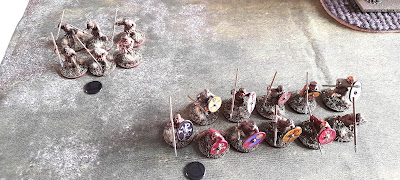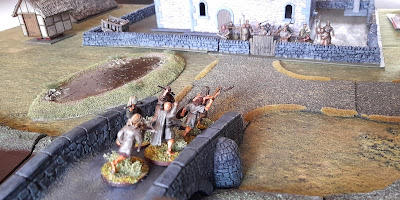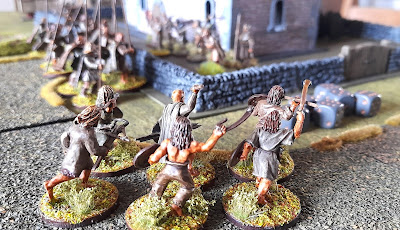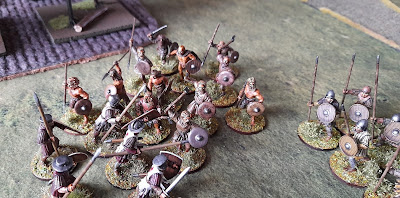In the Autumn season of the Year of Our Lord 1173, the Kingdom of Henry II was in a state of monstrous turmoil, the land tormented by the heinous scourge of Civil Strife. Each man looked upon his brother with suspicion, knowing not whether he stood loyal and steadfast for the King, or faithless and perfidious for the treacherous queen and her brood of turncoat offspring. Status nor rank were guarantee of loyalty, whether high and mighty or lowly scapegrace, none could be trusted in this age of disorder and disturbance.
Intro

Sunday, 24 September 2023
LION RAMPANT... "My Lord, Brother Fornicatus is nowhere to be found!"
In the Autumn season of the Year of Our Lord 1173, the Kingdom of Henry II was in a state of monstrous turmoil, the land tormented by the heinous scourge of Civil Strife. Each man looked upon his brother with suspicion, knowing not whether he stood loyal and steadfast for the King, or faithless and perfidious for the treacherous queen and her brood of turncoat offspring. Status nor rank were guarantee of loyalty, whether high and mighty or lowly scapegrace, none could be trusted in this age of disorder and disturbance.
Tuesday, 2 May 2023
LION RAMPANT - BATTLE FOR THE BEEF AND THE BOOZE!
The Dun Rheged Chronicles!
 |
| Publius Decimus Barbula, Warlord of Dun Rheged. |
Cattle: Move with controlling unit. If abandoned, they
remain in place, enjoying the lush grazing, until someone arrives to claim
them.
The Wine Cart: Moves with controlling unit. If the
controlling unit fails a Move Activation, they must immediately take a Courage
Test. If the Courage Test is failed, they become “Plastered” and begin to
imbibe the vigorous Gallic grape whilst savouring its full bodied aromatic bouquet. They must test to Rally in subsequent
Rally Phases and, should they fail the test they remain “Plastered” and one
figure is removed, too inebriated to continue. They do not fall back, but
remain in place while the more sober members of the Unit attempt to regain
control, which they do if the test is passed. If abandoned, the cart remains in place until someone arrives to claim
it.
Friday, 17 March 2023
LION RAMPANT... BETWEEN A ROCK AND THE VILLAGE PEOPLE!
 |
| Brother Stultus and the Village People Steadfastly Await the Scottish Onslaught! |
With the Earl and his henchmen making good their escape over the bridge and the remnants of the Galwegians struggling to cross the river, the final act of the Battle of Edmondsley came to its inevitable conclusion. Sir William de Stuteville and his knights crashed into the Wall of Spears, which had been reformed by the Scottish spearmen closer to the road.
And so, the field of battle was left to the mockery of the dead. The Scottish objective was to get as much of Earl Donnchad's retinue safely across the river as possible and, it is arguable, that they achieved a victory, as they succeeded in extricating the Earl and his knights, all but one of the Yeomen and the entire unit of Bidowers. Most of the Galwegians escaped by crossing the river and even the majority of the Lowland Spearmen managed to re-join the retinue after their courage failed and they fled across the bridge. Only the heavy cavalry suffered a complete disaster after they were sacrificed to hold up the advance of the English. The English themselves suffered few casualties, although the only one of the two spearmen units available to engage with the enemy did eventually break and fled the field after their encounters with the Galwegians and the Lowland Spears.




































































